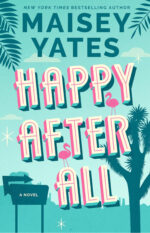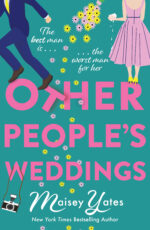Shiny Happy People…or not
Perfect people are boring. At least, I think they might be. They don’t exist. Outside of fiction at least, and when they do populate the book you’re trying to read, or the movie you’re trying to watch, it can get tedious very quickly.
We all try to make real people, and that means giving our characters flaws and foibles. Foot in mouth disease, a little clumsy, a quick temper. But what about characters with seriously dark stuff in their past or present? How far is too far…when do you take them where readers can’t follow.
This is highly subjective. So my post is going to be highly subjective. But hopefully, somewhere in there, you can figure out some things that work for you.
I’ve written a few characters with Big Mistakes in their backgrounds. And writing those characters I struggled with how far to take them. The conclusion I came to, more or less, is that it’s no so much about what they did, but why they did it, and how they feel about it now.
So when dealing with dark and damaged characters, characters you want readers to love, and even hurt for over the sins of their pasts, there are a few things to keep in mind.
Motivation: Why did they do it? If the reason is compelling enough, if you make us get it, put us in their shoes, help of feel their desperation, then it’s a rare reader who will condemn them for having it all blow up in their face. If the heroine commits a grave sin to save her child, then of most readers will be able to forgive her.
Side note: I think strong motivation is helpful, but it’s also possible to have a character who spent some time in their life just not being a very good person. But that makes the next step even more important…
The past in the present: How has it changed them? Are they remorseful? And by that I don’t mean are they wallowing in self-pity, but I mean have they admitted they were wrong to themselves? I think, and this is that subjectivity, it looks pretty ugly to have a character who did some Very Bad Things copping an attitude like ‘well what!? I did it. I’m not ashamed.’ Reason being, if it’s something that really hurt someone else, they just look like a total jerk. I want to see that they’ve changed because of it, that there was a consequence.
Let us see the change: The above change we were talking about. I want to see it. If the hero was an alcoholic I don’t want to see him relapse ten pages before the end of the book because if that happens, I’ll question his ability to truly be different for the heroine. I’m all right with seeing him struggle with it, but I want to see that he can master it now. Because I want to believe the change, so show it to me, don’t just tell me it will all me okay!
Make us understand: If the bad behavior is happening in the book (The Christmas Love-Child by Jennie Lucas is one of my favorite examples of this, because she takes us into her very damaged hero, and has us rooting for him!) then make me understand why. If the hero is flat out lying to the heroine, put me in his shoes. Show me WHY he’s doing it. (this doesn’t mean we always have to have it all explained right away, but it’s nice to have insight into characters so you can still root for them too. Rather than having them cast as the villain until the very end of the book!)
Remember that you already love your characters, and I don’t: I think this might be where some of the flawed characters fall down. As writers, we know them inside and out, we love them at conception. But the reader, and the editor, do not. Our characters have to earn their love, and while we, the writer, will love them through all manner of bad behavior without any redeption in sight, the reader will not. They have to see a glimmer of good. They need a reason to care.
This brings us too…
Redemption: The flawed character needs redemption. They need to find a way to forgive themselves, or find a way to ask for redemption. If it’s a heroine living in guilt for long enough to needs to be able to step out of it and demand better than the condemnation she’s been getting from those around her. If it’s a hero who’s been hiding from his past sins he needs to stand up and face them. But the greater the damage, the bigger the triumph must be in the end. It’s what makes reading about a flawed character worth it. That ultimate payoff where we see them move forward with their life and into their happily ever after.
So there are some of my thoughts on flawed and damaged characters. Feel free to add your own!
Comments
4 Responses | TrackBack URL | Comments Feed








HI Maisey! This is such a great post and very well summarized. Personally, I adore heroes with dark pasts, a bit tortured and rough around the edges. But I want to see the growth, and I want the payoff. I also want the past to be enough to carry the scars – sometimes I’ll read about a character who had something happen and I think, “Well, that isn’t so bad!” Really well said!
Interesting thoughts! I think it matters, too, to what degree the hero turns his damaged past on the heroine. I remember reading a book once where the hero, who’d already done something fairly horrible to the heroine while drunk and hurting (but at least that was the opening scene of the book, and theoretically forgivable), saw her again and, in his internal monologue, used a horrible phrase to describe her hat. And right then, he lost me. It’s one thing for the hero to have Done Bad Things or to be prickly or even to think he doesn’t like the heroine for part of the book, but it’s quite another for me to be in his POV and have to listen to him bad-mouth the heroine — because, at least to some extent, the heroine is me. And even though he fell for her later, I never fell for him. His ongoing struggles just irritated the crap out of me.
Isabel Sharpe told me once that the reader has to fall for the hero as quickly as possible, ideally from the first page, even if it takes the heroine a lot longer. That doesn’t mean he has to be perfect. It does mean he has to be trying to be good, or show some potential. If he’s a snarky jerk, the reader isn’t going to love him, and it will be a tough job to bring her around.
You know, I think the hardest thing for me to forgive in a character is a grumpy personality, especially irrational grumpiness. For example, she agrees to a marriage of convenience and then won’t speak to him because he doesn’t love her, etc. I love seeing characters apologize to other characters for bad behavior. “I’m sorry I was grumpy and rude and didn’t hold to the terms of our deal that I agreed to. I was being immature.” Thank you. You’re forgiven.
Jennifer, I think that’s why I love a damaged hero. The payoff, baby. But yeah, if I can’t love him, like Ruthie said, and he doesn’t do enough to redeem himself, it undermines the whole point of the damaged hero.
Ruthie, I like that. I totally agree, we have to see some humanity in him so we can be on his team and root for him to get his HEA.
Avoriana, that’s tough, and not so much what I would consider a flawed character as a way to manufacture drama between characters, does that make sense? Like bickering = conflict, which I totally disagree with. And yeah, sometimes people are grumpy and rude, and I think it’s great when a character owns up to it. I just read The Undoing of De Luca by Kate Hewitt and my favorite part was when the hero said, “I was an ass. I’m sorry.” I was like…YAYYYY!!!